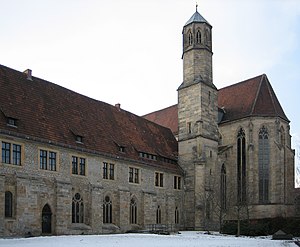From the Simple Propers Project. We hope to generate a file like this for every single chant in the book.
The New Translation Has Taken Effect!
 As I write, at 9:00AM this Saturday morning, Mountain Standard Time for us in the US on the last day of the Church year, Advent has already begun for our friends in New Zealand. And this is no ordinary First Sunday of Advent for them.
As I write, at 9:00AM this Saturday morning, Mountain Standard Time for us in the US on the last day of the Church year, Advent has already begun for our friends in New Zealand. And this is no ordinary First Sunday of Advent for them.
New Zealand has already implemented the new translation of the Roman Missal.
I am told by a priest friend and fellow summer student at the Liturgical Institute who is a pastor in Christchurch that the new translation of the Order of Mass only is being implemented. The rest of the texts remain in the 1973 translation. A missalette has been produced that contains all of the new texts which are used by people and priest alike.
I hope to get a full report on how things went to share on the Chant Café. So far there are no reports of riots or any other apocalyptic occurrences. In solidarity with our brothers and sisters in New Zealand let us rejoice in this beginning of a new era of liturgical renewal in the English speaking world!
Should We Applaud in Church?
Pope Benedict XVI, then Cardinal Ratzinger, wrote the following on applause in Church:
“Wherever applause breaks out in the liturgy because of some human achievement, it is a sure sign that the essence of liturgy has totally disappeared and been replaced by a kind of religious entertainment. ” (Spirit of the Liturgy p. 198)
Fr. Zuhlsdorf quoted this back to an inquiry concerning applause at Church.
This is precisely right and it is a serious problem. I doubt that any choir that uses a loft does not face this applause problem. A choir that is singing in front of the people will tend to elicit the kind of judgment from people that is rendered in a concert setting. People will want to express their appreciation, forgetting that the purpose of the singing and performing is not entertainment but worship.
Another problem to applause – and this applies even for the applause sometimes given to visiting dignitaries and the like – is that it is an audible distraction from worship. It creates an unmistakably “earthly” sound that just does not belong in the liturgical environment.
Musicians are enormously flattered by applause and if our schola every did receive such a thing, I would likely be inwardly very pleased, while at the same time I would be certain that something had gone very wrong.
I would suggest one exception to this. A great organist will often play a long postlude following Mass. It is polite to stay and listen to this, and it is fine to applaud at the finish. This is long after Mass has ended and the liturgy has come to a close.
The Rhythm Debate: Rather Serious Back Then
From Ceacilia 1933
St. Cecilia Sang the Psalms
From Cardinal Raymond Leo Burke:
One imagines that she was praying the words of the Psalms according to the ancient chant of the Church, which developed organically from the chant used in Jewish worship and continues today to be singularly suited to the raising of our minds and hearts to the Lord.
Beautiful article on the new missal
You will find it in InsideCatholic
Pachelbel’s Vespers Service
I was absolutely delighted to hear in concert the Deus in Adjutorium from the larger Vespers service by Johann Pachelbel. The performers were the Howard Payne University Concert Choir directed by Monte Garrett. I had no idea that this composition even existed. It was as delightful as any Vespers I’ve ever heard, and had me on on the edge of my seat from the first to the last.
In my own mind, I imagined the liturgical context for this piece, remembering that this was written to be a form of public prayer of a very special sort. The Baroque sound and technique must have been an amazing revelation for that generation, as the building out of the Gregorian tradition proceeded at a breakneck pace. The chant of course is what made this tradition possible. It certainly would never have come about without the core material as provided by the chant: its text, its musical structure, and its liturgical purpose.
I heard in this music ebullient expressions of hope for humanity, reflective of the rising prosperity, the greater chances for everyone, even the lowest peasants, to enjoy a better life and advance materially and socially. What a time it must have been, a singular moment in history. The religious wars had ended. The world was trading. Human rights were advancing. Plagues and disease were abating. In so many ways, Catholicism helped usher it in and promised to lead civilization into a brighter future. These hopes are expressed by the lightness and orderliness of the compositions here.
In our own times, this music expresses the same but the hope we hear is broader, not just of a better material life but of a better mode of living in every respect. Pachelbel knew nothing of the horrors of the last century, but the sweetest of his compositions still point the way, through the public prayer of the Church, to a special kind of beauty that transcends time and exists within the transcendent realm that liturgical exists and to touch and reveal to us. We hear even in the relatively barren realm of the concert hall.
Everyone who longs for better art in liturgy has attended a concert of this type of music and left with a sense of sadness for its banishment from its rightful home and setting in the Catholic Church. I’ve gotten used to this sense of sadness for decades.
But last night, and for the first time, I did not feel that. I had a sense of hope toward the liturgical progress in our time. This music is now making its return to its home. We no longer need to feel a sense of loss. Given everything that is taking place in the liturgical world of Catholicism, we can change our outlook and know that the work we do – through practice, prayer, and wise management – will be fulfilled in our own time.
Pachelbel’s Vespers can come home again and live again.



